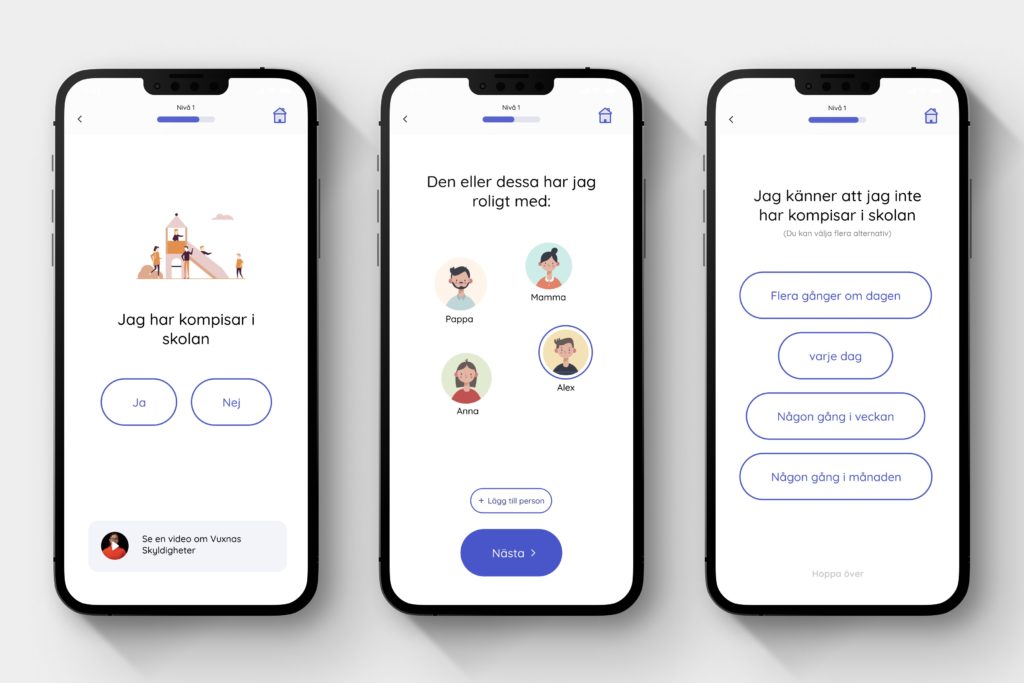Introduction
Ommej saves sensitive data and therefore it is important that our users are confident in how we handle them. Here we explain how we think about security and privacy.
We have two different user products:
- An app for children and young people, hereinafter referred to as the Ommej app.
- An administration system for adults working with children, hereinafter referred to as Ommej Admin.
What do we actually store?
Users of the Ommej app log in with their phone number or email address along with a password. We save both of these with a technique called hashing . This means you can use it to log in but we can't read any of the data. hashing. This means you can use it to log in but we can't read any of the data.
The user then answers a number of questions about himself. This is saved in our database. We can thus link all those responses to a user but cannot identify the user.
You can therefore say that the user is anonymous in our system.
Anonymous? How does that work?
The businesses that use Ommej associate a case number in our system with a case number they keep track of within the scope of their business. It can be in a student card or in an operational system at the care. In this way, the personal data is only handled in the systems where it already is and where there are clear procedures for how it is handled.
What kind of data do we store?
The questions that the children answer in our app always provide answer options. There are no questions where children answer in free text, so they cannot accidentally provide personal information about themselves or others. For example, questions might look like this:

Who can see this data?
- The child himself can see all the answers he has given.
- The child can choose to share their answers with an adult who can see a summary via a link.
- The child can choose to share their answers with an adult who uses Ommej for their work with young people's health, for example a social worker or a counsellor.
- These adults can share the case within their administration in the same way they share cases today. They can also share with other administrations, but by law they can only do this after obtaining the child's consent.
- Some employees at Ommej can see the data when they administer the database. But they cannot see which child it belongs to.
Where do we store data?
All our data is stored on servers in Sweden. We use a Swedish cloud service with high security.
